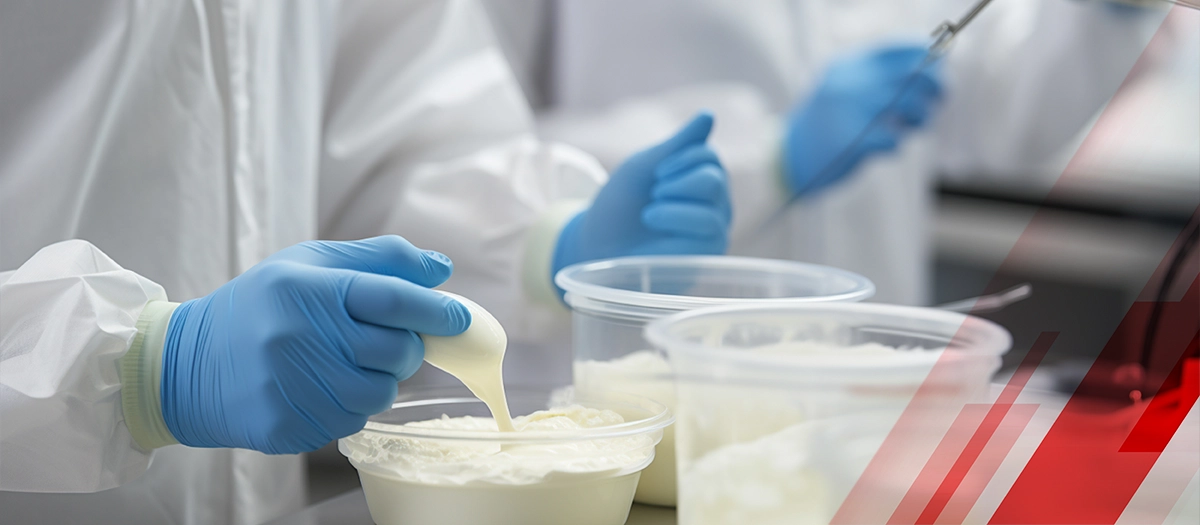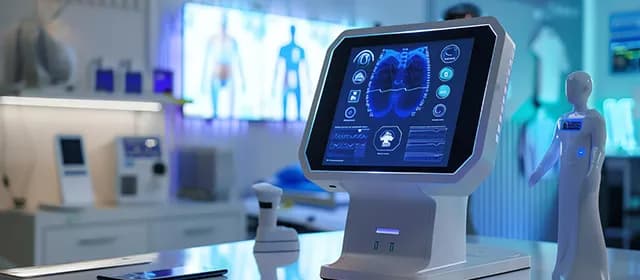Would you drink a glass of milk if you weren’t sure it was safe? Every day, dairy products undergo rigorous testing to ensure they are free from contaminants, adulterants, and harmful pathogens. From milk to cheese and yogurt, advanced methods and technologies help maintain quality and nutritional value. Behind the scenes, service providers, technology developers, and regulatory bodies work together to uphold food safety, meet strict regulations, and satisfy growing consumer demand for transparency.
The Dairy Testing market is expanding due to rising food safety regulations, increasing dairy consumption, and growing concerns over contamination and adulteration. Advanced testing technologies, including chromatography, spectroscopy, and PCR-based methods, are enhancing accuracy and efficiency. Kings Research estimates that the global dairy testing market is projected to grow from USD 7,262.8 million in 2024 to USD 11,460.1 million by 2031.
TOP 5 Trends in the Dairy Testing Market
1. Adoption of Rapid Testing Technologies
Conventional approaches in the dairy testing market are often slow and require significant manual effort. To overcome these challenges, the industry is increasingly adopting rapid testing technologies such as PCR (Polymerase Chain Reaction), ELISA (Enzyme-Linked Immunosorbent Assay), and biosensor-based assays. These innovative methods deliver fast, precise, and cost-effective results, reducing testing times and enabling quicker product clearance, which is an essential factor for large-scale dairy operations.
In December 2024, the U.S. Department of Agriculture (USDA) introduced the National Milk Testing Strategy (NMTS) to tackle the spread of the H5N1 avian influenza virus among dairy herds. Under this initiative, raw milk samples are required to be collected and tested from dairy farms, bulk milk transporters, and processing units to enable early detection and prompt containment of potential outbreaks.
2. Increased Focus on Food Safety & Quality Assurance
Food safety has emerged as a key driver fueling the growth of the dairy testing market. Both consumers and regulatory authorities are paying closer attention to the presence of contaminants such as pathogens, toxins, and adulterants in dairy products. Increasing incidents of foodborne illnesses and milk adulteration have further raised concerns. This growing focus on food safety is propelling the dairy testing market, supported by regulatory efforts and rising consumer demand for transparency and accountability across the dairy supply chain.
In March 2024, the Food Safety and Standards Authority of India (FSSAI) launched the Nationwide Milk Quality Survey, aimed at assessing the safety and quality of milk across India. With dairy being a daily staple and a critical component of nutrition in the country, this move ensures that milk and dairy products meet stringent quality standards. It is expected to drive demand for advanced dairy testing solutions that can accurately detect contaminants, adulterants, and quality parameters.
3. Technological Integration in Testing Processes
Advanced technologies like Artificial Intelligence (AI), Internet of Things (IoT), Blockchain, and automated testing systems are progressively being used in dairy testing processes in the dairy testing market. Their integration enhances testing precision, minimizes human errors, and enables real-time monitoring and end-to-end traceability of dairy products across the supply chain. Automated laboratories and smart sensor solutions are gaining widespread adoption, particularly among large-scale dairy manufacturers seeking efficiency and compliance.
In October 2024, the University of Pennsylvania State (Penn State) and the University of Wisconsin–Madison researchers developed an AI-powered approach to decode microbial communication for enhancing milk safety testing. This innovative method uses artificial intelligence to analyze the chemical signals of microbes, enabling faster and more accurate detection of contamination risks in milk. The development highlights how advanced data-driven technologies can enhance the precision, speed, and predictive capability of dairy safety assessments reducing dependency on traditional, time-consuming testing protocols.
4. Growing Market for Organic & Premium Dairy Products
Consumers today are more health-conscious and increasingly prefer dairy products with clear and reliable nutritional information. This shift is driving dairy producers to conduct detailed nutritional testing, covering key components such as fat, protein, lactose, vitamins, and minerals. As a result, demand in the dairy testing market is rising, with accurate labeling backed by verified testing becoming a crucial factor in shaping consumer purchasing decisions and strengthening brand credibility.
In April 2024, Ingredion announced the launch of its breakthrough stevia-based sweetener, PUREFRUIT 1172, which achieved unmatched consumer acceptance in taste testing. As dairy brands focus on reducing sugar content and artificial ingredients, PUREFRUIT 1172 offers a natural, plant-based sweetening solution that enables manufacturers to deliver healthier, great-tasting dairy products with simplified ingredient lists, supporting the clean label movement in categories such as flavored milk, yogurt, and dairy desserts.
5. Rise in Demand for Nutritional Testing
Consumers today are more health-conscious and increasingly prefer dairy products with clear and reliable nutritional information. This shift is driving dairy producers to conduct detailed nutritional testing, covering key components such as fat, protein, lactose, vitamins, and minerals. As a result, the dairy testing market is witnessing growing demand, with accurate labeling backed by verified testing becoming a crucial factor in influencing consumer purchasing decisions and enhancing brand credibility.
In September 2024, Cathedral City, a prominent dairy brand in the UK, launched a new high-protein, half-fat cheddar range. This product line caters to health-conscious consumers seeking dairy products with enhanced nutritional profiles, offering 30g of protein per 100g while containing 50% less fat than standard cheddar. The range is available in various formats, including block, sliced, grated, and minis, providing versatile options for consumers.
Concluding Thoughts
The dairy testing market is evolving rapidly, fueled by increasing consumer awareness, stringent regulatory standards, and the rising demand for safe and high-quality dairy products. Key trends such as the adoption of rapid testing technologies, growing focus on food safety and quality assurance, and the surge in demand for nutritional testing are reshaping how dairy producers approach product testing. As the market continues to expand, driven by innovation and regulatory compliance, the emphasis on accurate, efficient, and transparent testing processes will be essential in ensuring consumer trust and sustaining market growth.

.webp&w=3840&q=75&dpl=dpl_HkC6vhtovZ9gdp5f4CCyQszcdnYs)

